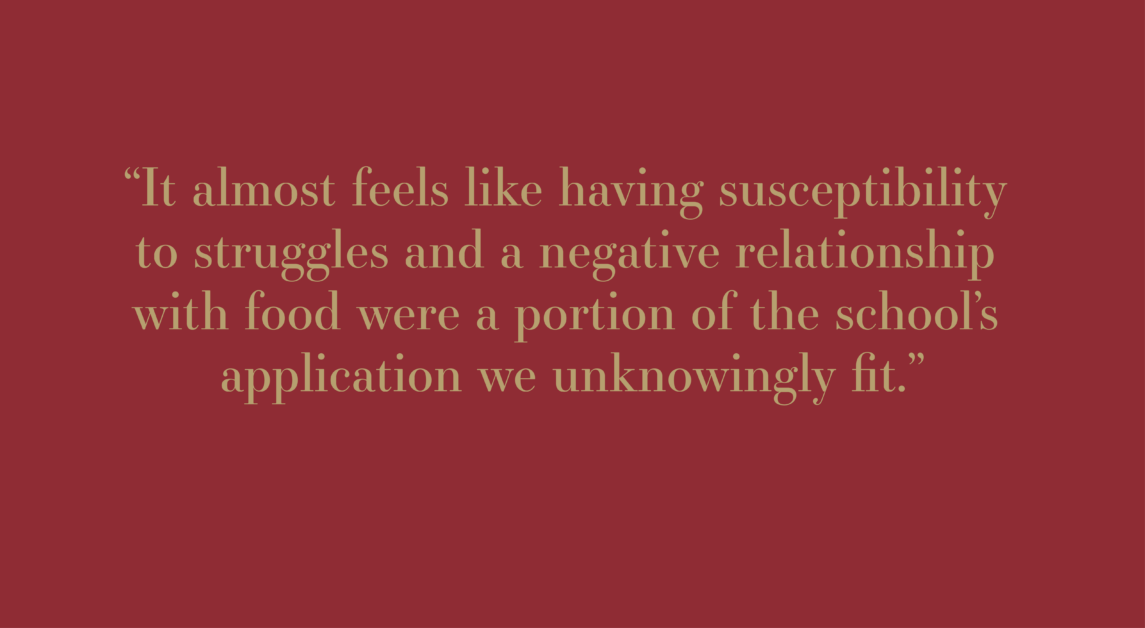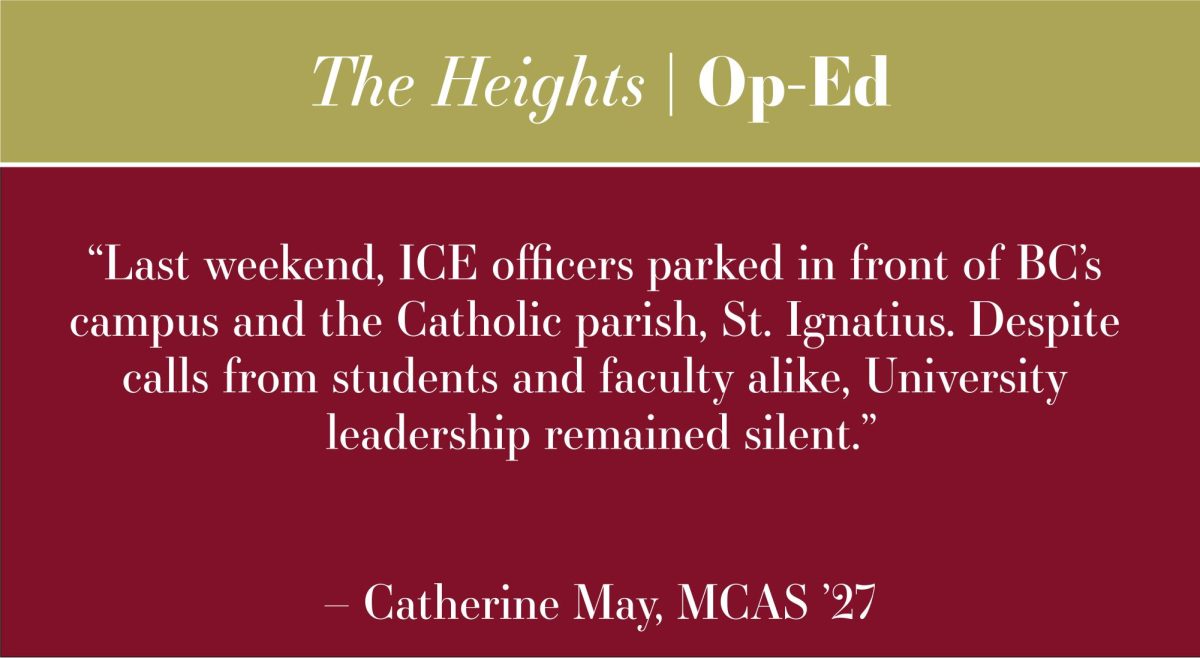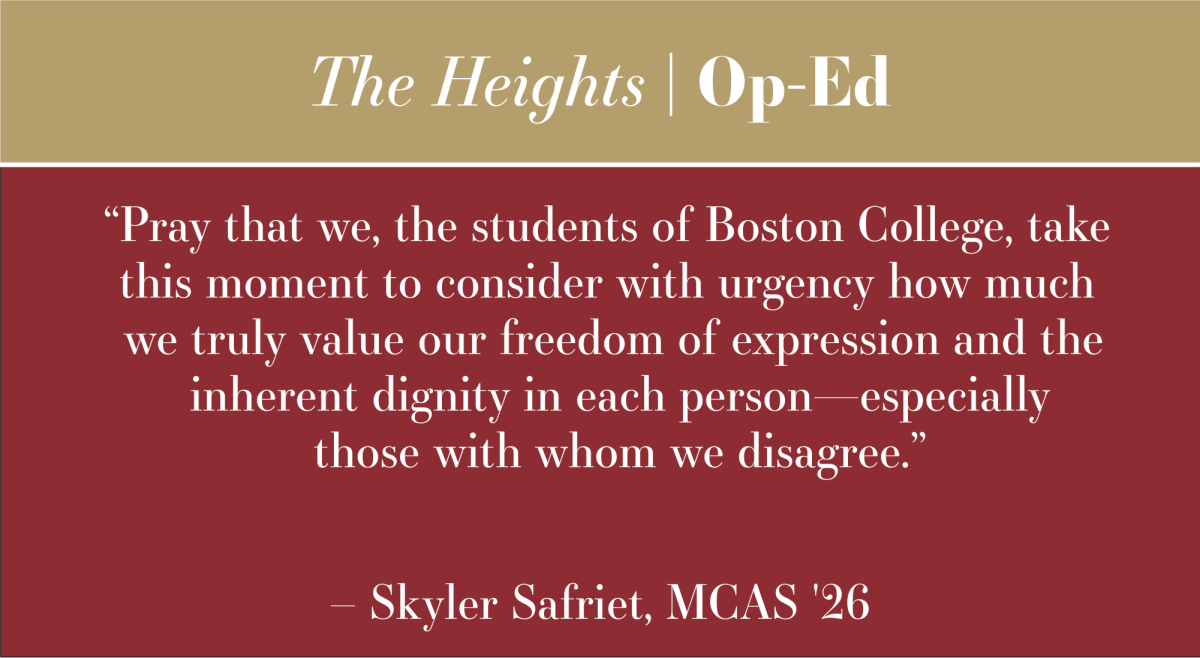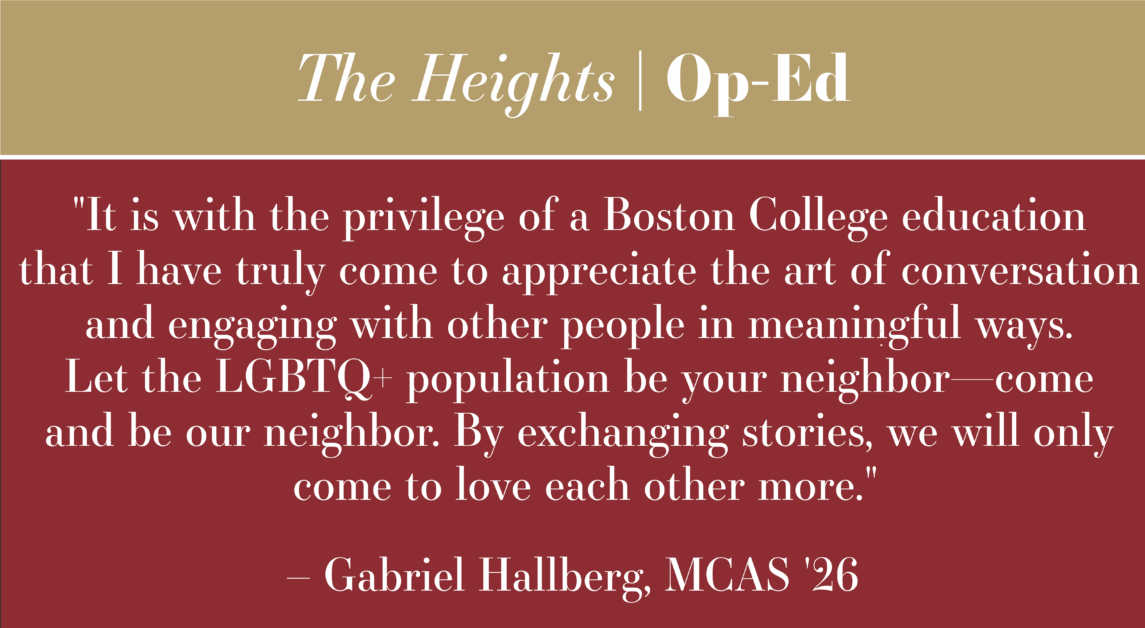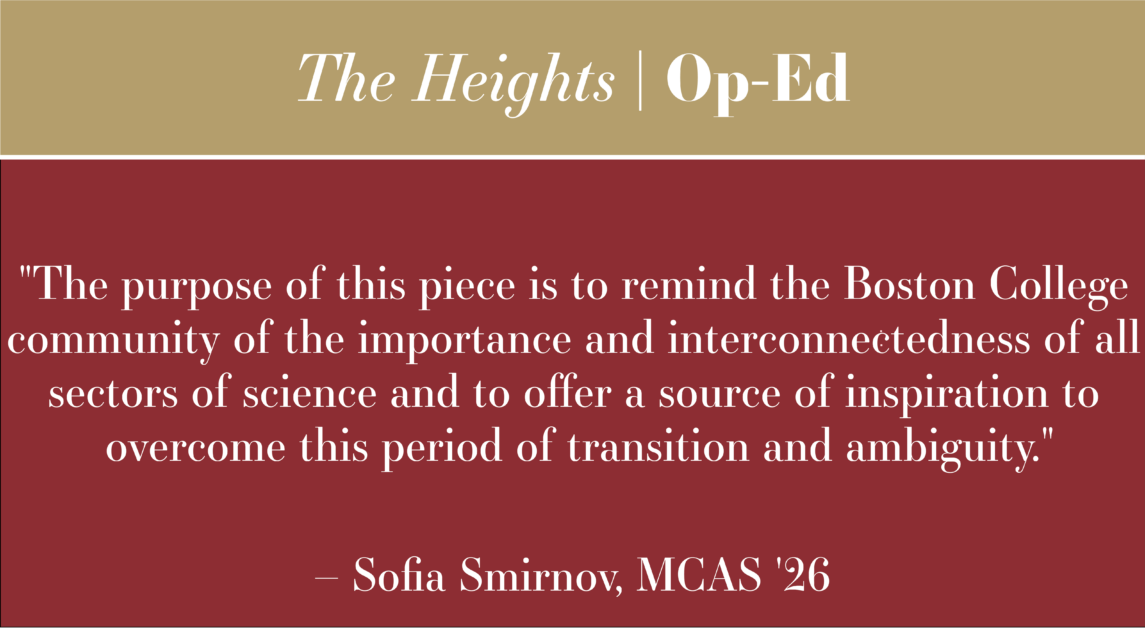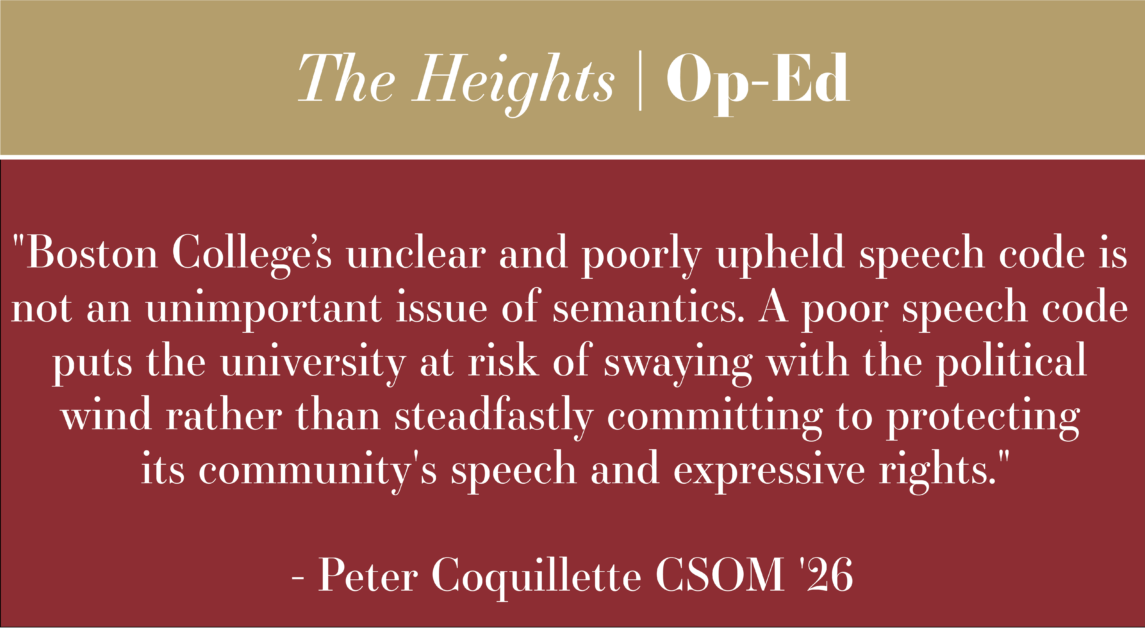I always wondered why being on a college campus in recovery from an eating disorder is so much harder than being elsewhere, and I think I finally have my “why.” It’s because no one talks about it.
I have been much more attuned to my surroundings since being in deep treatment, and the things I notice around me on a prestigious college campus are staggering. Salads for every meal are advised, sugar-free syrups are advertised, going to the gym at least once a day is a must, presentable attire is encouraged, and eating a consistent schedule of meals on the weekend is out of the ordinary.
What brought my realizations to light was a recent conversation with a friend over dinner. What started as me genuinely checking in on her relationship with food turned into her acknowledging that having an unhealthy, or even damaging, relationship with food is just part of being a female student here. It feels like everyone has it or is dealing with it, so it is not something that needs to be fixed. Everyone is envious of the girl next to them at the gym. Everyone rethinks their meal choice when witnessing the girl in front of them, and everyone feels guilty over their chosen outfit when seeing that of the next.
It almost feels like having susceptibility to struggles and a negative relationship with food were a portion of the school’s application we unknowingly fit.
An aid to the problem is that people dub our dining hall food as disgusting and poorly made. There are Instagram accounts “exposing” the bad conditions students’ meals are served in and criticizing meal choices. Now, what if that is one student’s favorite meal? Or what if a student enjoys the meals they receive? Guilt is subconsciously attached to enjoying the food here because the “normal” thing to do is to find it revolting, post pictures of it to social media, or take a bite and push the plate away in disgust. While some of this is fun and games, the caveat is that it advertises a negative relationship with food without even realizing it. For a girl struggling to get herself to the dining hall on a particular day, the slander on the dining hall’s Instagram is all she needs to decide against dinner that night.
The gym is a completely different issue in itself. With a newly renovated, four-story complex, it seems as though it is perceived as disrespectful and ungrateful not to take advantage of this resource. Beyond that, the process of moving in and starting a new semester often calls for a rejuvenation of gym usage. It feels like coming back to school and improving your body go hand in hand at this school. It doesn’t matter how you come in looking or feeling.
I know for me, in particular, this was hard. I came back after receiving treatment for a severe eating disorder, and I knew that the gym was not the best spot for me the first weeks of my transition. Nevertheless, it is hard to not feel like the odd man out when I look out my window and see the consistent herds of students rushing to the gym, some because they enjoy it, but others because it seems to be what everyone else is doing. This cycle is aided by our community’s stigma against resting and not having enough on one’s plate. If you aren’t doing anything, you go to the gym.
So, let’s zoom out. Publicly advertising stigmas against dining and peer pressure for gym attendance—what a great recipe. Based on the many discussions with people I know and the conversations that can be overheard in the dining halls, I am not surprised there is a widespread negative relationship to food around the school. While there is no problem with people disliking the food or enjoying daily trips to the gym, there is a problem with the lack of conversation around the possible ulterior motives behind such things. In my experience at this school, the problem has been perpetrated because it is buried under the rituals of what is “normal.” Getting treatment was only so hard for me because I couldn’t understand why I needed help for something that felt like part of my school’s identity.
I hope that this school community can change that. I hope that, although the food can not always be five-star quality, it does not always feel like an odd thing to look forward to eating after a long day of classes. I hope that skipping the gym for the week because one simply is tired is not viewed as “lazy.” I hope that a size two isn’t viewed as “ideal” and that people won’t feel the need to marry the hopes of that to their relationship with food.
There is no easy solution and we are not unique in being a campus community that struggles with this. BUT, what we can be unique in is beginning to talk about it. It is okay to not want to go to the gym. It is not only okay, but HEALTHY to eat before going out and to eat three full meals on the weekend. (Yes, even if you drank the night before.) As much as we are blessed with learning in the esteemed schools here on campus, we can also be blessed with learning that a good relationship with nourishment is necessary to get to the places we want to be beyond this school.
We have to be pretty exceptional to be on this campus. Let’s use that to fix what we can.

